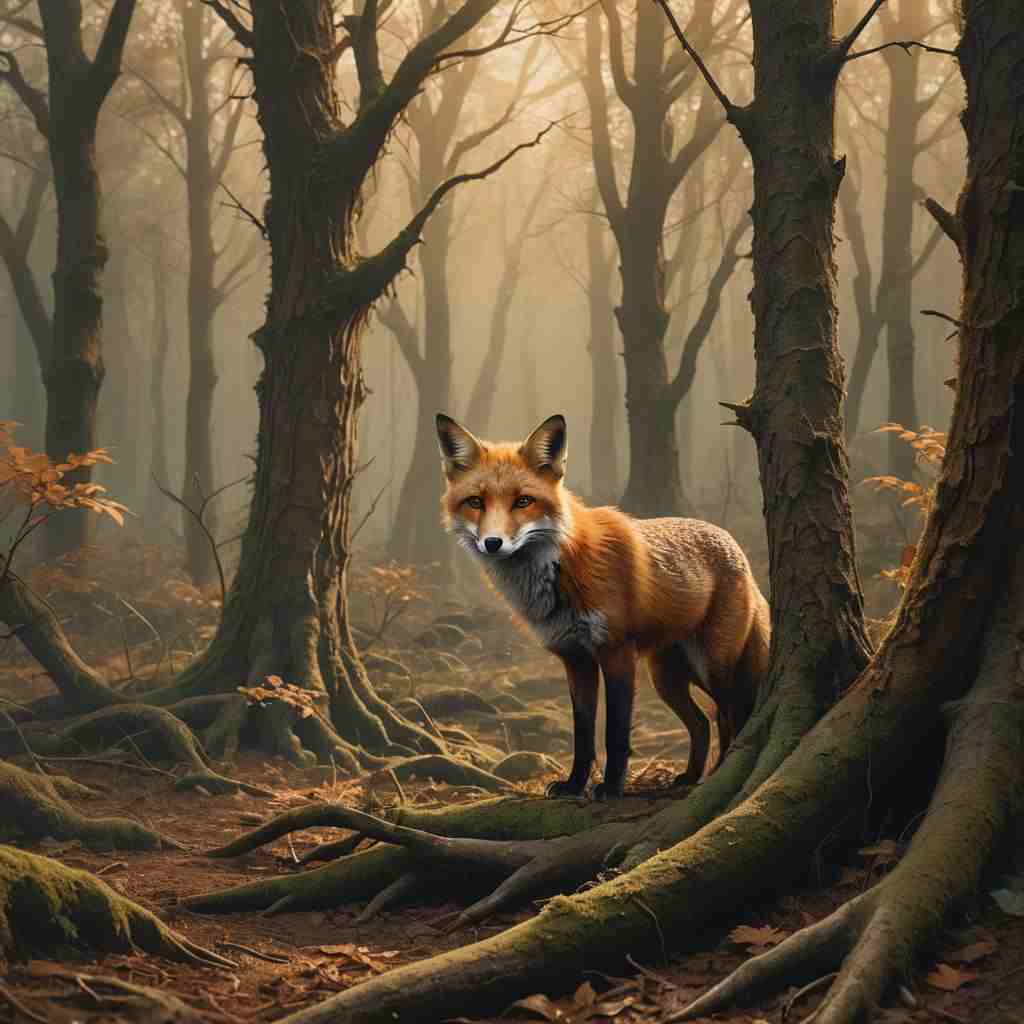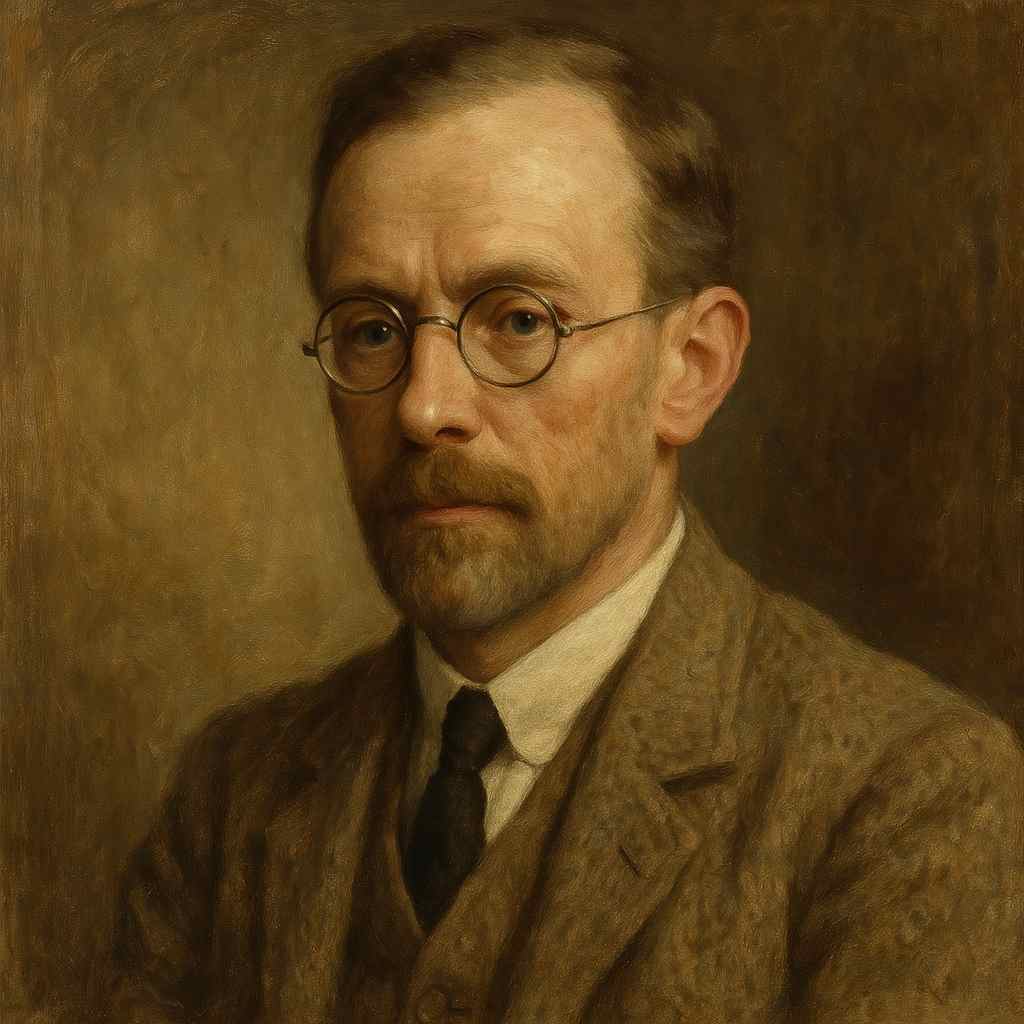The Fox (Welsh)
R. Williams Parry
1884 to 1956

Want to track your favorites? Reopen or create a unique username. No personal details are required!
Y Llwynog
Y bardd aeth i'r llwyn i weld y llwynog,
a'i lun wedi'i lunio ar ei galon.
Ond collwyd y llwynog drwy dwyll y llwyn –
wrth droi'n y drws, diflannodd ei weledigaeth.
R. Williams Parry's The Fox
R. Williams Parry’s brief yet evocative poem, The Fox (original Welsh title Y Llwynog), captures a moment of both natural beauty and existential mystery. Through a compact and delicate structure, Parry contemplates the tension between perception and reality, as well as the elusive nature of truth and inspiration. The poem reflects both a literal search for a fox and a metaphorical search for understanding, encapsulating themes of desire, loss, and the tricks of the natural world.
Structure and Form
The poem is composed of four lines that read almost like a fable, combining a direct narrative with subtle, symbolic implications. Written in simple, straightforward language, the poem’s simplicity belies its complexity. Parry uses the brevity of the poem to emphasize the immediacy of the experience, allowing each word to bear significant weight. The lack of explicit rhyme and the controlled rhythm in both the Welsh original and the English translation create an air of restraint, mirroring the poem's elusive subject.
Analysis of the Title and Opening Line
The title, The Fox, immediately draws attention to this animal, a common symbol of cunning and trickery in literature and folklore. The choice of the fox suggests a creature that is both beautiful and untrustworthy, embodying qualities that hint at something more than just a physical being—it represents something intangible and elusive. In the first line, "The poet went to the grove to see the fox," Parry introduces the fox as the goal of the poet’s journey. The grove, a place of trees and shadow, hints at a natural, almost sacred space, rich with hidden life and meaning. The grove also functions as a metaphor for the mind or spirit, a landscape where visions may appear but not remain.
The Symbolism of the Fox and the Poet’s Pursuit
The fox in this poem is "etched upon his heart," an image that suggests deep, personal significance. The poet is not simply an observer; he approaches the fox with a sense of longing, possibly for understanding, inspiration, or truth. This line suggests that the fox is not merely a physical creature but a vision or ideal that has deeply affected the poet’s inner self.
The act of etching signifies something permanent and intentional, yet the fox itself remains ephemeral. This tension between permanence (etched) and transience (the elusive fox) creates a paradox that resonates with the poet's experience of beauty and art—things that leave an indelible mark on the heart yet cannot be fully possessed.
Deception and Loss in the Grove
The third line, "But he lost the fox to the deceit of the trees," introduces the idea of deception, shifting the tone of the poem from wonder to disillusionment. The "deceit of the trees" implies that the natural world is not only capable of hiding but also of actively misleading. The trees, which initially seem passive, are now complicit in obscuring the poet’s goal, embodying the trickery of appearances. Nature is portrayed as both the scene of revelation and the source of obscurity, hinting at its dual ability to inspire and confound.
The Vanishing Vision: Conclusion
In the final line, "just as he turned, his vision disappeared," Parry brings the poem to a quiet yet powerful close. The poet's turning—a literal and metaphorical act—signals a shift in perspective or understanding, but it arrives too late. The fox, and all it represents, vanishes the moment it seems within reach. This disappearance underscores the fleeting nature of inspiration and insight, experiences that tantalize with their beauty yet evade capture. The fox here is not a creature to be possessed but an emblem of the eternal chase for meaning, a vision that slips away just when it feels close.
Conclusion
R. Williams Parry’s The Fox captures a profound meditation on the pursuit of beauty, truth, and inspiration. Through the symbol of the fox, Parry explores the paradox of desiring what cannot be fully grasped. The poem invites readers to reflect on the mysteries of perception and the inevitable losses that accompany the pursuit of understanding. In The Fox, Parry suggests that some visions are destined to remain elusive, leaving their trace on the heart yet evading the confines of human comprehension. This moment of encounter and loss resonates as a universal theme, speaking to the human experience of glimpsing something transcendent that cannot ultimately be contained.
This text was generated by AI and is for reference only. Learn more
Want to join the discussion? Reopen or create a unique username to comment. No personal details required!



Comments
No comments yet. Be the first to comment!